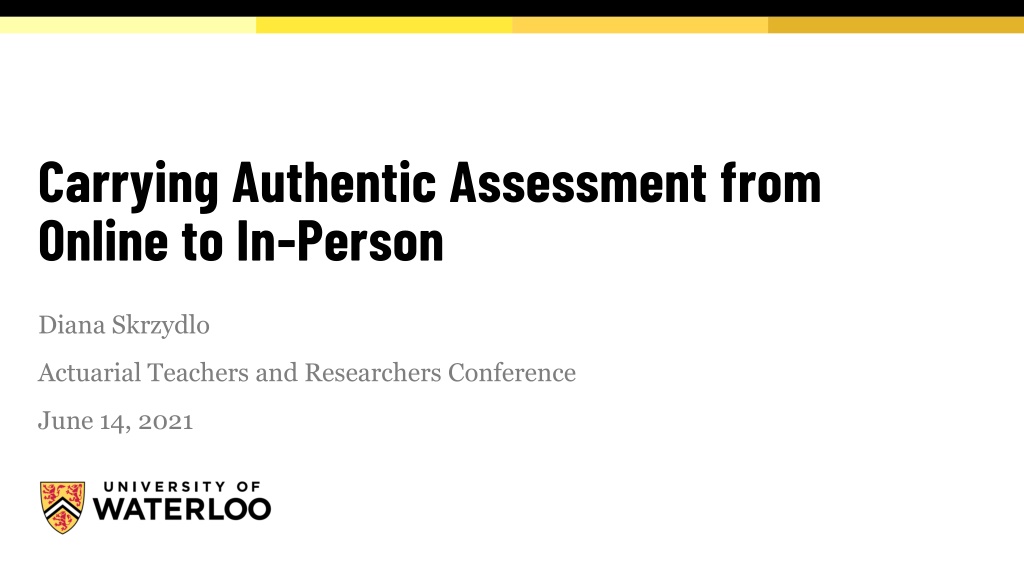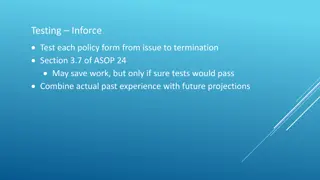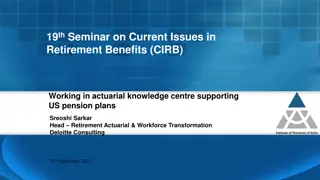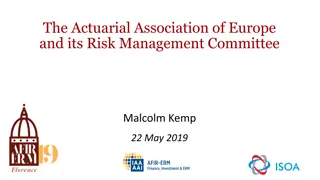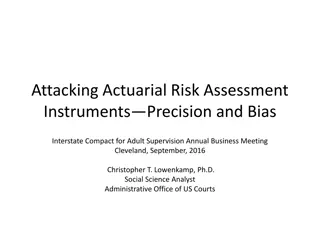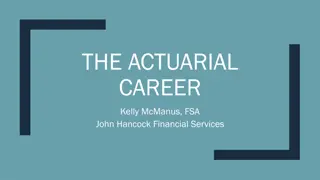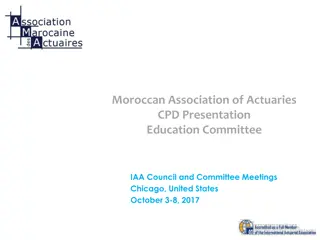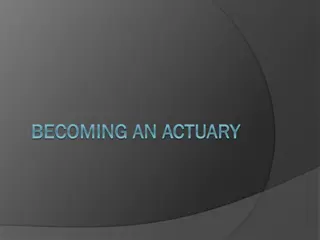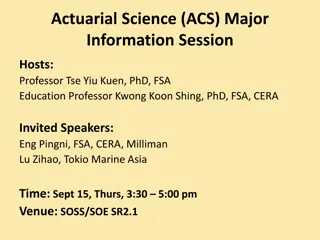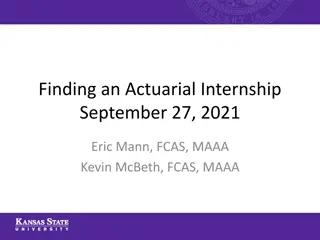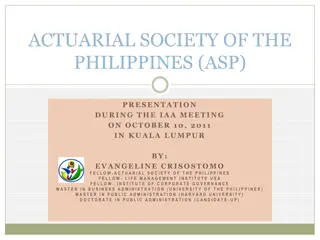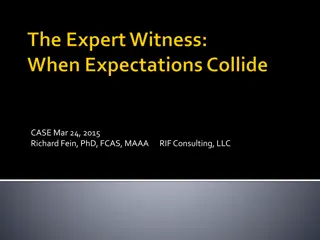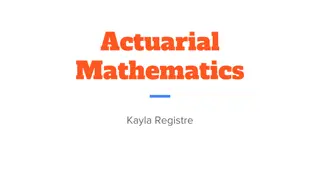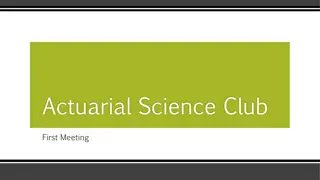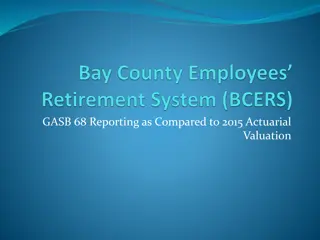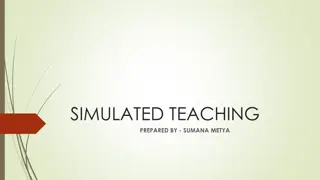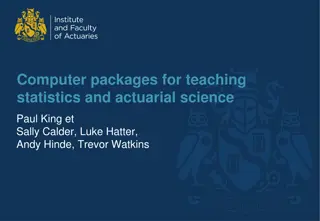Enhancing Teaching Assessment for Actuarial Education
Exploring the transition of assessment practices from online to in-person settings, this presentation by Diana Skrzydlo at the Actuarial Teachers and Researchers Conference delves into the purpose of assessment, key principles, and activities for effective evaluation. Discover insights on diagnostic, formative, and summative assessment types, alongside strategies for authentic and meaningful assessment aligned with learning outcomes. Learn about self-assessment, reflective writing, assignments, and projects, all aimed at empowering students and enhancing their learning experiences.
Download Presentation

Please find below an Image/Link to download the presentation.
The content on the website is provided AS IS for your information and personal use only. It may not be sold, licensed, or shared on other websites without obtaining consent from the author. Download presentation by click this link. If you encounter any issues during the download, it is possible that the publisher has removed the file from their server.
E N D
Presentation Transcript
Carrying Authentic Assessment from Online to In-Person Diana Skrzydlo Actuarial Teachers and Researchers Conference June 14, 2021
Outline What is assessment for? What changed with online teaching? What should we bring back with us?
Purpose of Assessment Diagnostic Formative Summative Diagnostic (before learning) - what your students already know, ungraded Formative (while learning) - goal is student learning, ongoing, graded or ungraded Summative (after learning) - goal is seeing what they learned, end of term, graded These types of assessment should build on each other!
Assessment Principles Assessments should be: Authentic meaningful, not busy-work Aligned with learning outcomes test what you want them to know Associated with your context relate to lectures, discussion board, city, news,
Assessment Activities 1. Self-Assessment and Reflective Writing 2. Assignments and Projects 3. Alternate Format Exams
1. Self-Assessment and Reflective Writing Give students agency over their learning Questions (MC/TF) students can try and get instant feedback Could be incorporated into lectures or not Reinforce key topics, highlight important ideas for later Ungraded, but similar to questions on graded assessments Reflective assignment(s) where students reflect on goals for the course and what they have learned Summarize important course concepts in plain language Describe a problem you struggled with but now understand Discuss what made you want to study actuarial science Explain whether you achieved your goals for the course
2. Assignments and Projects Allow some choice of questions or topics so students can work on material that is most interesting to them Include localized info Refer to something specific from lecture material, discussion board, ask to provide a discussion of current news article, etc Authentic tasks Something they might have to do in the workplace e.g. create and document a spreadsheet to solve a problem, write up the results in a report/memo Multi-stage or scaffolded Topic proposal, data, draft report, presentation (recorded or synchronous) For large classes, allow students to work in groups
3. Alternate Format Exams Summative assessment of the depth of students knowledge Open-book or Take-home Exams Have some questions that are straightforward, some more challenging Make sure you include some questions at higher Bloom s level, not bookwork Oral Exams Great way to check students level of understanding and be sure it is their work Ask students to define, evaluate, compare, discuss process, or explain their solution to a problem
Key Takeaways Bring back a variety of assessments that are authentic, aligned with your learning goals, and associated with your context, such as: Self-Assessment questions Reflective writing Meaningful assignments and projects Open-book or take-home exams Oral exams
Diana Skrzydlo Twitter: @ActSciProf Email: dkchisho@uwaterloo.ca Blog: https://uwaterloo.ca/scholar/dkchisho/blog
